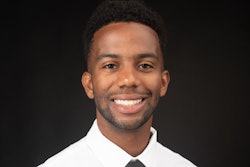
“Once I had an opportunity to speak with [Passion], I was struck by the grasp and depth of her intellectual interest, as well as her drive and commitment, not only to her success, but to benefitting others,” says Allen, one of the nation’s most prominent educators. “Those interests were front and center and persuaded me and demonstrated that she is one of my most talented students.”
Lord’s educational background is an intriguing mix of marketing communications, business, research, and student affairs. These skills have combined in her groundbreaking research around how students of color, particularly Black students, engage with institutional social media as a tool for recruitment or retention. She is finishing her Ph.D. candidacy in the field of higher educational organizational change at UCLA, under the mentorship of Allen.
“Higher education is a form of business. I see the connection, still, with my background in marketing and business, being connected in the work I do now,” says Lord, adding that, due to experiencing micro-aggressions on the campuses of primarily white institutions, she has dedicated herself to building a sense of belonging for marginalized students.
“As soon as people heard my name, Passion Lord, it was, ‘Where are you from, what sport do you play?’ I didn’t want any other students to have the experience I did,” says Lord. “My goal is to have students reevaluate preconceived notions and bias when interacting with students of not the same background, creating places and spaces for all students to feel welcome. Institutions are your home away from home.”
Lord says that social media is a constantly changing tool that prospective and current students use for a variety of reasons and in a variety of methods. This can include students watching “day in the life” videos of current students, or reacting to media created by the institutional teams.
“This is a great opportunity for institutions to learn that social media has become a second search engine for students. They’re gathering information and trying to decipher if they’re a good fit,” says Lord. “Students value hindsight information. Often, when you look at a website, it shows all the great and wonderful things about [an institution]. Students are looking for a holistic approach: what’s good about this school, what are the ‘bads.’ No school is perfect.”
Students use social media to find organizations and events happening on campus, which contributes to their sense of belonging and their overall retention. It’s a way for students to stay connected, says Lord.
Lord brings her background as a low-income, first-generation student with her in all her research and work. It’s a fine-tuned empathy that drives her hunger for inclusion and education. Allen says she has been “instrumental” in shaping the Bunche Fellows Program at UCLA, designed to give research students at a large institution like UCLA the unique experience of a smaller program.
“Passion started as a graduate student teaching assistant, and quickly demonstrated her expertise and ability, and has become a co-lead in this program, helping us decide content, supporting the students, and push for research programs and agenda that will document what we’ve accomplished with this model,” says Allen.
Lord has the ability to push institutional thinking into the 21st Century, says Allen. Whether she becomes an academic lead researcher or a future institutional president, Allen says, Lord will be leading with vision.
















